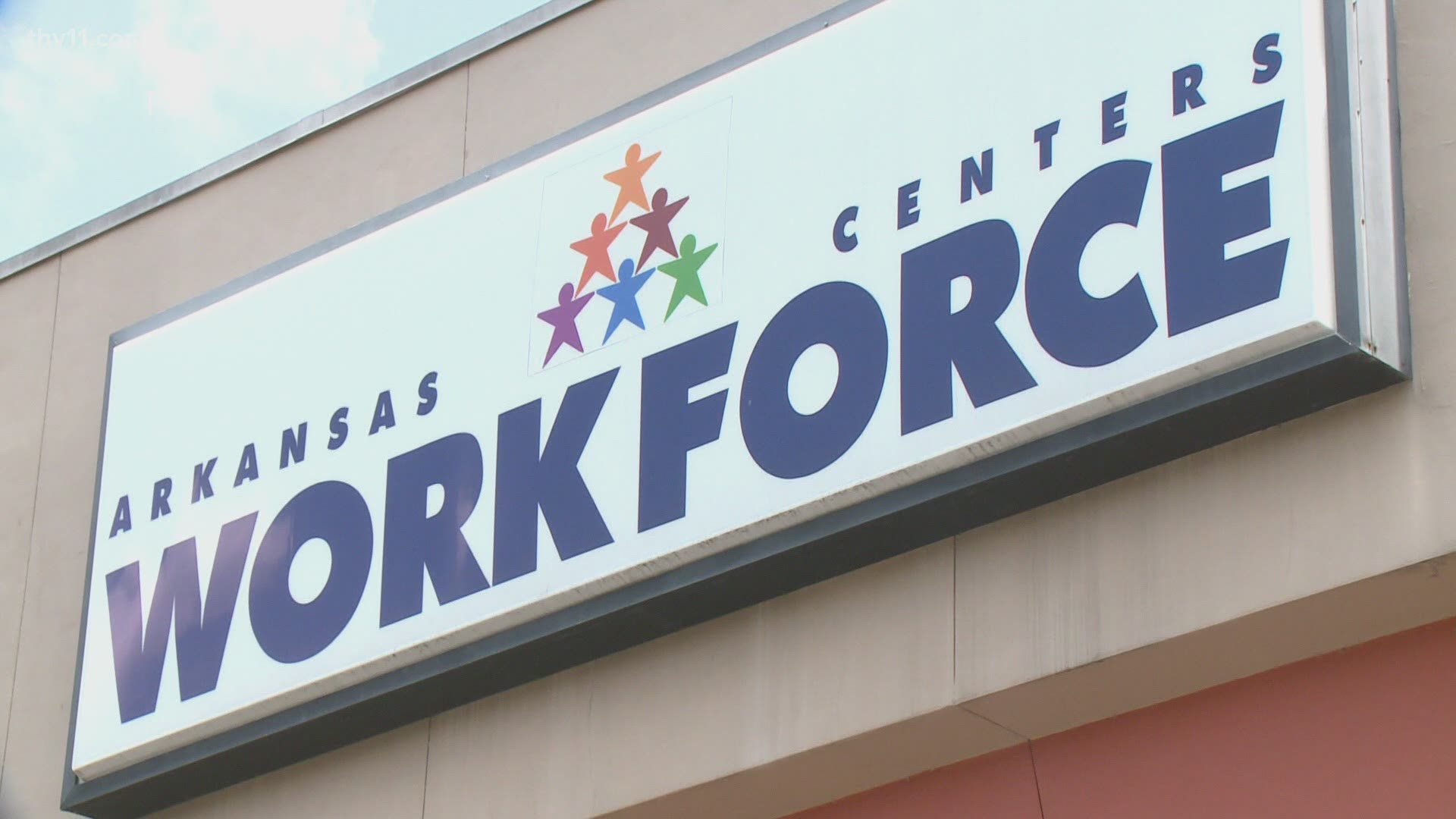LITTLE ROCK, Ark. — At the same time the federal government announced record growth in the last three months, state officials said delayed funds from the Lost Wages Assistance program were on the way to people unemployed and waiting to join the recovery.
"We're glad to be able to get those funds into the hands of those Arkansans who need it so desperately right now," said Mike Preston, the Arkansas Secretary of Commerce.
Those recipients are largely from the group who saw Pandemic Unemployment Assistance dry up in August. President Trump used an executive order to provide $300 supplements to unemployment checks for six weeks. That program got started in September, but Arkansas could only distribute three weeks worth of cash.
After working out funding details and getting legislative approval, that second bundle of cash started landing in bank accounts and debit cards this week.
"Those individuals who were unemployed in those specified weeks did receive their payment for the LWA," Preston said. "That was an additional $300."
About 70,000 people took advantage of the first round of benefits to the tune of $71-million. This second round is expected to pay out $65-million. The payments are retroactive and anyone on the program earlier this year shouldn't have to do anything to claim this money if they are still out of work.
The money could serve as a stopgap for the dwindling but still sizeable number of people who haven't yet hopped back aboard the economic bandwagon.
"What we are seeing is that more people are going back to work. Our paid out claims last week hit the lowest it has been since the end of March," Preston said.
But for those still waiting for those restaurant and service sector jobs to come back after the pandemic wiped them out, there's a lot riding on the election.
Preston says these three week's worth of checks are all the state can do right now without federal help, even as the economy comes back.
"It's positive news, but we still have a long ways to go and a lot of work to do to get back to where we were pre-pandemic," he said.

